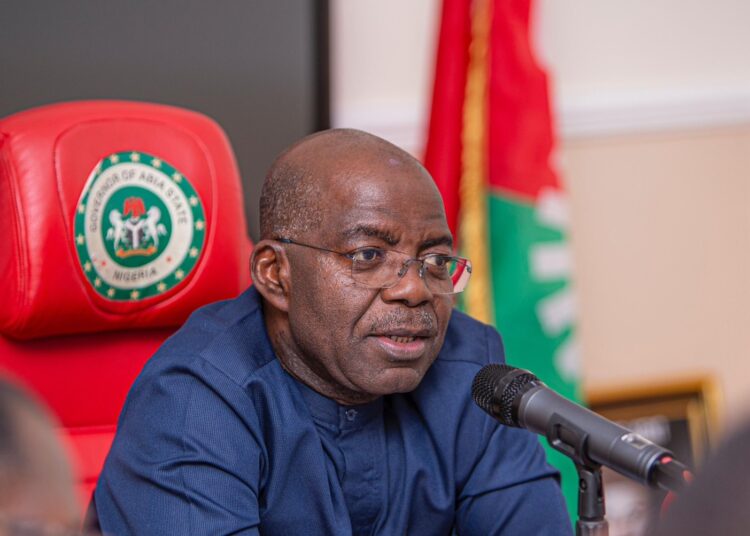Abia State government has targeted N120 billion Internally Generated Revenue (IGR) for this year, representing about 207 percent increase over last year’s N39 billion.
This is just as the state’s Appropriation Bill for the year is N750.2 billion as against last year’s N567.2 billion being an earlier indication of the quantum leap in its finances.
The commissioner for Information, Okey Kanu announced the target in the capital, Umuahia, at a news briefing on this week’s state executive council meeting chaired by Governor Alex Otti.
He informed that the 2024 IGR was by N7 billion higher than the targeted N32bn and expressed the hope that the 2025 target would be achieved successfully also.
“Consequently, the government is embarking on a number of reforms initiated to achieve this and to ensure that the residents are better served through more developmental programmes and initiatives,” he noted.
He said the ministry of Poverty Alleviation and Social Protection has awarded contracts for rural road maintenance in Isuikwuato, Isiala Ngwa North and South, Obingwa, Ikwuano, Ukwa East, and Ugwunagbo local government areas.
Kanu explained that the project, totaling about 59 kilometres, will be executed through the State Rural Access Agricultural Marketing Project (RAAMP) being sponsored by the World Bank.
“This is a World Bank-assisted project and the contractors would soon be mobilised to site. This no doubt adds another dimension to the rural road infrastructure development agenda of this administration.”
In a remark, commissioner for the ministry, Blessing Felix said the project is for empowerment of the local community’s businesses and crucially the most vulnerable populations as their livelihood depends on accessible roads and robust infrastructure.
“Part of what RAAMP will be doing is also to ensure that we have agricultural hubs. So, we have upcoming programmes, markets that need also to be rehabilitated, and also to meet up with the objectives.”
“It will, among others, also improve access to rural areas by rehabilitating and maintaining key rural transport infrastructure to support agricultural marketing and logistics intervention to reduce post harvest losses,” she said.





